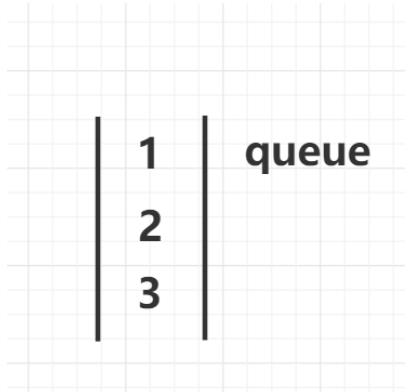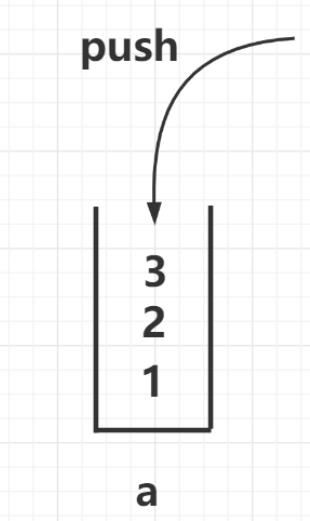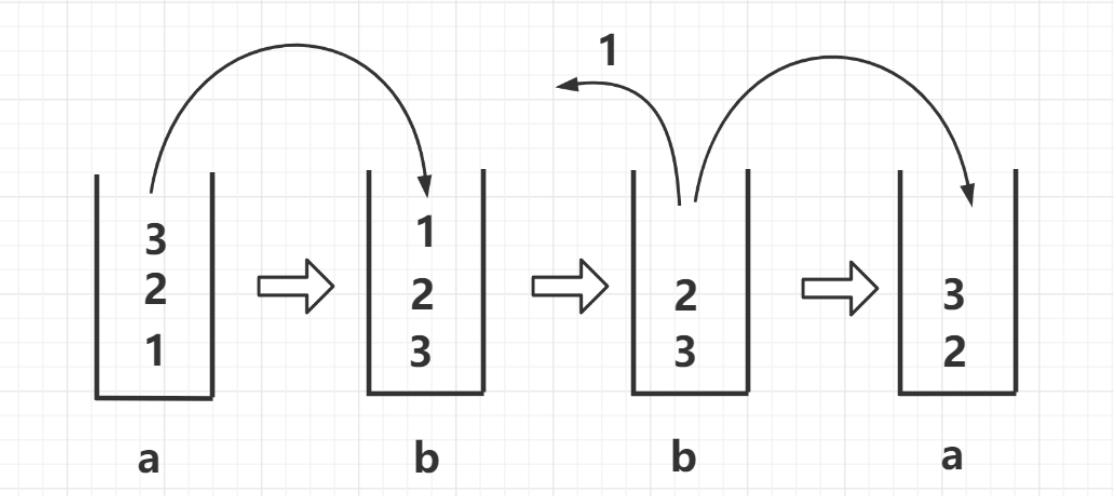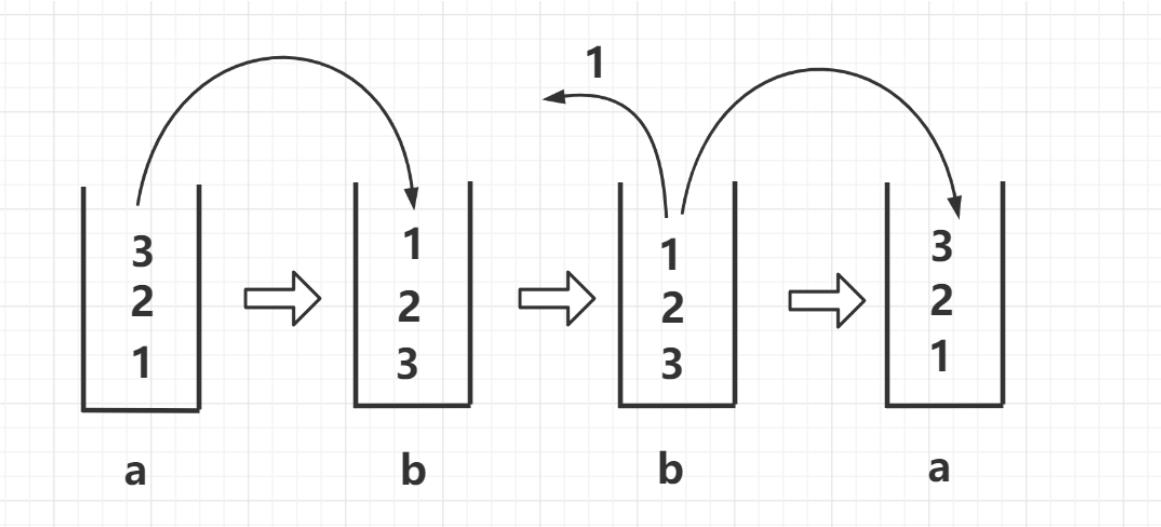精选力扣500题 第27题 LeetCode 232. 用栈实现队列c++ / java 详细题解
Posted 林深时不见鹿
tags:
篇首语:本文由小常识网(cha138.com)小编为大家整理,主要介绍了精选力扣500题 第27题 LeetCode 232. 用栈实现队列c++ / java 详细题解相关的知识,希望对你有一定的参考价值。
1、题目
请你仅使用两个栈实现先入先出队列。队列应当支持一般队列支持的所有操作(push、pop、peek、empty):
实现 MyQueue 类:
void push(int x)将元素x推到队列的末尾int pop()从队列的开头移除并返回元素int peek()返回队列开头的元素boolean empty()如果队列为空,返回true;否则,返回false
说明:
- 你只能使用标准的栈操作 —— 也就是只有
push to top,peek/pop from top, size, 和is empty操作是合法的。 - 你所使用的语言也许不支持栈。你可以使用
list或者deque(双端队列)来模拟一个栈,只要是标准的栈操作即可。
进阶:
- 你能否实现每个操作均摊时间复杂度为$ O(1) $的队列?换句话说,执行
n个操作的总时间复杂度为 O ( n ) O(n) O(n) ,即使其中一个操作可能花费较长时间。
示例:
输入:
["MyQueue", "push", "push", "peek", "pop", "empty"]
[[], [1], [2], [], [], []]
输出:
[null, null, null, 1, 1, false]
解释:
MyQueue myQueue = new MyQueue();
myQueue.push(1); // queue is: [1]
myQueue.push(2); // queue is: [1, 2] (leftmost is front of the queue)
myQueue.peek(); // return 1
myQueue.pop(); // return 1, queue is [2]
myQueue.empty(); // return false
提示:
1 <= x <= 9- 最多调用
100次push、pop、peek和empty
假设所有操作都是有效的 (例如,一个空的队列不会调用pop或者peek操作)
2、思路
模拟含有1,2,3元素的队列queue

用两个栈a,b模拟队列,a是存元素的栈,b是辅助栈
-
1、
push(int x):直接将元素加入到a栈中
-
2、
pop()– 即需要弹出栈底元素,我们先将a栈的所有元素插入辅助栈b中,然后弹出b栈顶元素,最后再将辅助栈b中的元素重新压入当前栈a中;
-
3、
peek()– 返回栈顶元素,同理,我们先将a栈的所有元素插入辅助栈b中,然后输出b栈顶元素,最后再将辅助栈b中的元素重新压入当前栈a中,恢复当前栈a原状;
-
4、
empty()– 返回当前栈是否为空;
时间复杂度分析:push(x) 和 emtpy()均只有一次操作,时间复杂度是
O
(
1
)
O(1)
O(1);pop()和 peek()涉及到 n次操作,所以时间复杂度是
O
(
n
)
O(n)
O(n)。
3、c++代码
class MyQueue {
public:
/** Initialize your data structure here. */
stack<int>a,b; //定义两个栈
/** Initialize your data structure here. */
MyQueue() {
}
/** Push element x to the back of queue. */
void push(int x) {
a.push(x);
}
/** Removes the element from in front of queue and returns that element. */
int pop() {
while(a.size()) b.push(a.top()),a.pop();
int t = b.top();
b.pop();
while(b.size()) a.push(b.top()),b.pop();
return t;
}
/** Get the front element. */
int peek() {
while(a.size()) b.push(a.top()),a.pop();
int t = b.top();
while(b.size()) a.push(b.top()),b.pop();
return t;
}
/** Returns whether the queue is empty. */
bool empty() {
return a.empty();
}
};
/**
* Your MyQueue object will be instantiated and called as such:
* MyQueue* obj = new MyQueue();
* obj->push(x);
* int param_2 = obj->pop();
* int param_3 = obj->peek();
* bool param_4 = obj->empty();
*/
4、java代码
class MyQueue {
static Stack<Integer> a = new Stack<Integer>();
static Stack<Integer> b = new Stack<Integer>();
/** Initialize your data structure here. */
public MyQueue() {
a.clear();
b.clear();
}
/** Push element x to the back of queue. */
public void push(int x) {
a.add(x);
}
/** Removes the element from in front of queue and returns that element. */
public int pop() {
int n = a.size();
for(int i = 0;i < n - 1;i ++) b.add(a.pop());
int t = a.pop();
for(int i = 0;i < n - 1;i ++) a.add(b.pop());
return t;
}
/** Get the front element. */
public int peek() {
int n = a.size();
for(int i = 0;i < n - 1;i ++) b.add(a.pop());
int t = a.peek();
for(int i = 0;i < n - 1;i ++) a.add(b.pop());
return t;
}
/** Returns whether the queue is empty. */
public boolean empty() {
return a.isEmpty();
}
}
/**
* Your MyQueue object will be instantiated and called as such:
* MyQueue obj = new MyQueue();
* obj.push(x);
* int param_2 = obj.pop();
* int param_3 = obj.peek();
* boolean param_4 = obj.empty();
*/
原题链接: 232. 用栈实现队列

以上是关于精选力扣500题 第27题 LeetCode 232. 用栈实现队列c++ / java 详细题解的主要内容,如果未能解决你的问题,请参考以下文章